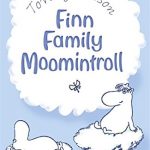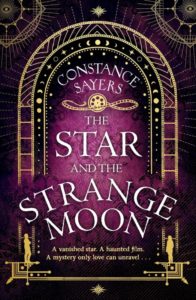Diana Gabaldon
 Describe your writing style in one sentence?
Describe your writing style in one sentence?
I write like a jellyfish hunts: drifting through the water at the beck of wind and current (this is not the same thing as randomness, btw), my tentacles trailing an invisible cloud of sensitivity until they encounter some entertainingly edible fragment—at which point, I glom onto it and sting it to death.
Describe your typical writing day?
Well, this depends where I am in the process of a novel. In the beginning, I may be writing only an hour a day (and doing immense amounts of research and formless response to same—it would be stretching a point to call this thinking); as I move into the middle stretches of a book (I have long middle stretches; it takes me around three years to write one of the big OUTLANDER novels), I’m writing about a thousand words a day, researching an hour or two a day, and beginning to build an n-dimensional shape in the hyperspace of my mind. In what I call the Final Frenzy—the last five or six months—I know almost everything about the book, and am working flat out, up to twelve or fourteen hours a day—or until I fall over. Luckily this part doesn’t last too long, or I’d die.
But the more typical middle part…I’m a night person. It’s quiet, it’s dark save the glow of my screen and the flame of my candle, and no one bothers me: no phone, no people moving around, no psychic noise. So the bulk of my serious writing is done between midnight and four AM. I do begin in the morning, though, in order to get a foothold on the day’s work, so it can be marinating in my subconscious while I dig in the garden and take the dogs to the vet. I get up around 9, have a quick breakfast while answering email and gradually waking up, then am compos mentis enough to start work around 10:30 or so. Go have lunch with my husband, work another hour afterward, then go run errands and do the household business, fetch groceries, make dinner, socialize with my husband for a bit—and then tuck him in at 10 PM or so, he being a morning person, after which I lie down on the couch with a book and the two dachshunds, and if no one requires me for anything, I’ll fall asleep within fifteen or twenty minutes—but will wake up again naturally around midnight, and go upstairs to work.
What was your route to publication?
Boringly orthodox, though with a more or less interesting prelude. There’s a long version and a short version of this, but I’ll do the short one here. To wit: I wasn’t intending to tell anyone that I was writing a novel in the first place, let alone try to publish it. I was just writing it for practice (and consequently, since no one was going to see it, I did anything I pleased in it. Which is why no one has yet succeeded in describing what it is I write. The best attempt so far is probably Salon magazine’s: “the smartest historical sci-fi adventure-romance story ever written by a science Ph.D. with a background in scripting “Scrooge McDuck” comics.”).
For reasons I’ll omit here (connected with my side job as a freelancer for the computer press), I’d become a member of the Compuserve Literary Forum a year or so before. (This is NOT a writer’s group or a critique group, btw. I have nothing against either one, but not my style. The LitForum was—and still is (though now renamed the Compuserve Books and Writers Community, and no longer a paid membership entity; it’s open to the web at www.community.compuserve.com/Books) –just a bunch of people who like books. Some writers, lots of readers, all very intelligent, interesting folk.)
Well, I wasn’t telling these people what I was doing, either. But one night I was working late, posting and reading messages to and from the Forum in between pages of the software review I was writing, and having a desultory argument with a gentleman online about what it feels like to pregnant. I ended up putting a four-page chunk of fiction, in which a young woman tells her brother in some detail what it’s like to be pregnant, in the Forum library, in order to win the argument (which I did, btw). Well, everyone who’d been following the argument went and read this piece—whereupon they all came rushing back, saying, “This is cool! What is this?” To which I replied, “I don’t know.” “Well, where’s the beginning?” they persisted. “Haven’t written that yet,” I mumbled. “Well, put up some more of it!” they said. So I did.
Which is to say, whenever I had five to ten pages that would stand alone without a lot of explanation, I’d put them up in the library—maybe every couple of months. (I should perhaps add here that I don’t write with an outline and I don’t write in a straight line; I don’t have anything approximating chapters until the last thing before I send a manuscript to the editor.) And after four of five of these chunks, people began to say, “This is great! You should try to publish this!”
I muttered that I didn’t really know what sort of book it was…but eventually, I proposed to write a book that I might want to publish. So, for the sake of argument, how might I proceed?
As I say, this wasn’t a writer’s group, per se, but there were a number of professional writers who hung out there, many of whom I knew by this time, and all of whom were very generous with their advice. All of them said, without exception, “Get a literary agent.”
Condensing the long version here, I was introduced to the agent I had my eye on by one of my LitForum acquaintances who was a client of that agent’s at the time. I knew this guy online, but the introduction was accomplished by US Mail; my first agent, Perry Knowlton, was a lovely older man who I’m sure never touched a computer in his life. Anyway, my friend just told Perry I was worth looking at, I followed up the introduction with my own letter, and—in essence—said, “I have this very long historical novel. I don’t want to waste your time; would you be willing to read excerpts from it?” (I didn’t tell him I wasn’t through writing it; excerpts were all I had.) To which Perry kindly replied (by phone) that he would. So I hastily typed up a 26-page synopsis (I didn’t yet know everything about the book, but enough to make a decent fist of it) and sent this along with my bundle of excerpts. And…he took me on, on the basis of an unfinished first novel. Most unusual, even then—and very lucky.
When I finally did finish the manuscript, I gave it to Perry, who promptly sent it out to five editors who he thought might like it—and within four days, three of them had called back with offers to buy it. He negotiated amongst them for two weeks, emerging with a three-book, seven-figure (on paper) contract, and…bing. I was a novelist.
What inspires you?
Pretty much everything.
Did you have all nine books mapped out before you began to write or have they taken on a life of their own just from the first?
Weeellll….there are writers who really profit from having outlines and index cards, and maps of their settings and wall-charts of their characters’ food allergies. Then there are the Other Kind.
Those of us who are the Other Kind don’t think it would be any fun to write a book if we knew what was going to happen. We also don’t think in a straight line—and we don’t write that way, either.
I write in bits and pieces, where I can see things happening. So for a long time, I have handfuls of disjoint pieces, but as I work and research and think, I begin to see the connections that form—tenuous as a jellyfish’s cobweb tentacles, but just as solidly there—between them, and they begin to stick together and form slightly bigger pieces. And these larger chunks begin to line themselves up against the multi-dimensional historical timeline I’m evolving in my head, and at some point in the process—usually eighteen months to two years in –I’ll finally see the shape of the book.
This is an actual geometrical shape, and once I’ve seen it, the writing grows much easier—and a lot faster—since I can now see what pieces are missing and what shape they should be.
In a way, you could say the books take on a life of their own—surely they have a life of their own—but I must say, I never think of it like that, since it implies that a writer who works like this is not, in fact, working, but merely sitting down and allowing some mystic force actually to write the thing. This is not the case.
Is there a book, by another author, that you’d wish you’d written?
No, not really. There are lots of books that I admire tremendously and think are better than anything I could possibly do, but I don’t feel any sense of envy or acquisitiveness toward them. I just love them.
What’s the best thing about being a writer?
You can be anyone, anytime, anywhere, without regard to logistics, expense, or post-traumatic stress disorder. And you can do it in your nightie, if you want to.
If you were holding a fantasy dinner whom would you invite?
How many place settings are we talking here? Josef Mengele, perhaps; I’m fascinated by what makes truly evil people (as opposed to the garden-variety politician or religious fundamentalist, say) tick. Mike Carey and Phil Rickman, maybe—they being the two latest additions to my Methadone List (this is the list of books and authors I keep for those people who write to me asking what they’re supposed to read while waiting for the next of my books)—if only because I love the way they use language, and I appreciate their senses of humor (and given what they write, I think they would be just as fascinated by Dr. M. as I would be). Probably my good friend Elva; she’s deeply friendly and deeply curious, and never hesitates to ask the bluntest of questions, albeit in a compassionate way; no chance of the conversation being awkward. That’s five, with me….let’s keep it intimate and make it six: I’d love to talk to Simon Lovat, the Old Fox (whose character, as his illegitimate grandson described it, was so twisty that he could conveniently hide behind a spiral staircase).
What are your top five tips for new writers?
I only have three, I’m afraid. And they apply to any writer, at any stage of development:
1. Read.
2. Write.
3. Don’t Stop!!
For more on Diana Gabaldon, visit her website:
http://www.cco.caltech.edu/~gatti/gabaldon/gabaldon.html





Leave a Reply